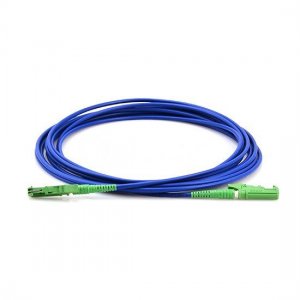Sports Card Blogs
Recent headlines and news,Premier league, champions league, European and world football football news.
Recent headlines and news,Premier league, champions league, European and world football football news.

# Armoured Fiber Optic Cable: Robust and Reliable Solution for High-Speed Data Transmission
## Introduction to Armoured Fiber Optic Cables
In today’s digital age, the demand for high-speed data transmission continues to grow exponentially. Armoured fiber optic cables have emerged as a critical solution for ensuring reliable and secure data transfer in challenging environments. These specialized cables combine the benefits of traditional fiber optics with enhanced physical protection, making them ideal for various industrial and commercial applications.
## What Makes Armoured Fiber Optic Cables Different?
Unlike standard fiber optic cables, armoured variants feature additional protective layers that shield the delicate optical fibers from physical damage. The key components of an armoured fiber optic cable include:
– Core: Contains the optical fibers that transmit data as light pulses
– Buffer coating: Protects individual fibers
– Strength members: Provide structural support
– Armour layer: Typically made of steel or aluminum for mechanical protection
– Outer jacket: Offers environmental protection
## Key Advantages of Armoured Fiber Optic Cables
### 1. Superior Physical Protection
The armour layer provides excellent resistance against:
– Crushing forces
– Rodent attacks
– Accidental impacts
– Construction hazards
### 2. Enhanced Durability
These cables are designed to withstand:
– Extreme temperatures
– Moisture and humidity
– Chemical exposure
– UV radiation
### 3. Long-Term Reliability
Armoured cables maintain signal integrity even in harsh conditions, reducing maintenance costs and downtime.
## Applications of Armoured Fiber Optic Cables
Armoured fiber optic cables find use in numerous demanding environments:
### Industrial Settings
– Manufacturing plants
– Oil and gas facilities
– Mining operations
– Power generation stations
### Outdoor Installations
– Underground conduits
– Direct burial applications
– Aerial deployments
– Military and defense communications
### Commercial Infrastructure
– Data centers
– Campus networks
– Smart city projects
– Transportation systems
## Choosing the Right Armoured Fiber Optic Cable
When selecting an armoured fiber optic cable, consider these factors:
### 1. Armour Type
– Interlocking metal tape: Flexible and lightweight
– Corrugated steel: Maximum protection
– Aluminum: Good balance of protection and flexibility
### 2. Fiber Count
Determine the number of fibers needed based on current and future bandwidth requirements.
### 3. Environmental Considerations
Assess factors like temperature range, moisture exposure, and potential chemical contact.
### 4. Installation Method
Choose between direct burial, conduit, or aerial installation options.
## Installation Best Practices
Proper installation ensures optimal performance:
– Always follow manufacturer guidelines
– Use appropriate pulling techniques to avoid excessive tension
– Maintain minimum bend radius specifications
– Protect cable ends during installation
– Test connections thoroughly after installation
## Future of Armoured Fiber Optic Technology
As data demands continue to grow, armoured fiber optic cables will play an increasingly vital role in:
– 5G network infrastructure
– Industrial IoT deployments
– Smart grid implementations
– Next-generation data centers
Advancements in materials science and manufacturing techniques will likely lead to even more robust and lightweight armoured cable solutions in the coming years.
Armoured fiber optic cables represent the gold standard for reliable, high-speed data transmission in challenging environments. Their unique combination of performance and protection makes them indispensable for modern communication networks across various industries. By understanding their features, benefits, and proper application, organizations can make informed decisions when implementing these critical infrastructure components.
Keyword: armoured fiber optic cable